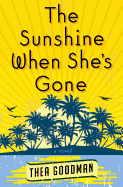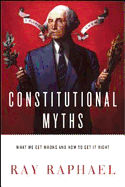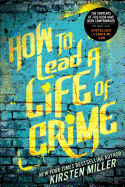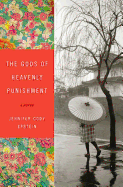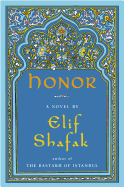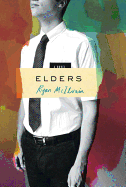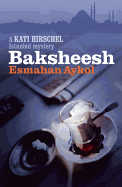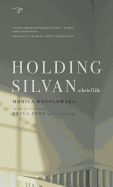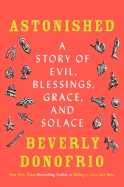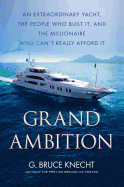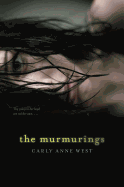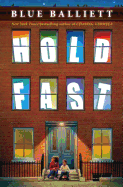Friday, March 15, 2013
In multiple genres, dogs and cats have emerged as credible, likable narrators:
In Love Saves the Day, a novel by Gwen Cooper, a smart, tabby named Prudence tells the story of her owner, Sarah, who has gone missing. Prudence is forced to relocate to the home of Sarah's lawyer daughter and her unemployed husband. Will the feline-averse couple in marital crisis ever accept the love of this abandoned kitty?
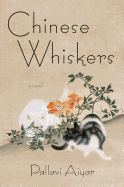 Two cats living in modern-day Beijing narrate Pallavi Aiyar's imaginative novel Chinese Whiskers. Soyabean is a male kitten living in a multi-generational middle-class household, while Tofu, a female kitten, roams the streets, roughing it. How the two cats come to live together is only part of the story, a suspenseful morality tale about the values of "Old China" versus "New China."
Two cats living in modern-day Beijing narrate Pallavi Aiyar's imaginative novel Chinese Whiskers. Soyabean is a male kitten living in a multi-generational middle-class household, while Tofu, a female kitten, roams the streets, roughing it. How the two cats come to live together is only part of the story, a suspenseful morality tale about the values of "Old China" versus "New China."
Chet, a dog who flunked out of K-9 School, offers a clever point of view as the sidekick to down-on-his-luck private investigator Bernie Little. The two "babysit" a Hollywood heartthrob, a bad boy with secrets, who is filming a blockbuster movie in a sleepy little town in A Fistful of Collars, the fifth installment in Spencer Quinn's humorous Chet and Bernie mystery series.
Children and young adults can experience the perspective of Enzo, a lovable, observant lab-terrier mix in Racing in the Rain: My Life as a Dog, the adaptation of Garth Stein's adult novel The Art of Racing in the Rain. This tender-hearted story teaches valuable lessons about friendship and the choices we make for our lives. Its message speaks to readers of any age.
So whether you're a cat or dog person, enjoy reading general fiction, mysteries or YA/crossover lit, take your pick. Animals, in the hands of the right authors, have become great storytellers. --Kathleen Gerard, blogger at Reading Between the Lines
The Sunshine When She's Gone
by Thea Goodman
Sleep deprivation is a powerful form of torture. When Thea Goodman's The Sunshine When She's Gone introduces us to new parents Veronica and John, they haven't slept through the night in six months, let alone had a date night. Veronica has become a desirable yet distant woman with a wad of tissues up her nose; John is a neglected husband trying hard to gain a morsel of his wife's attention. Clara, their blessed baby girl, has massively tanked their social life, but as we enter this family scene, Clara has done the unthinkable--she has finally slept through the night.
Things get sticky pretty quickly after that, though. John, intending to let his exhausted wife sleep in, sets out with Clara to a diner right around the corner in Manhattan but winds up taking her to the Caribbean for the weekend by accident. (Yes, that happens.) How will the hypervigilant Veronica react when she finds out, and what will she do in their absence? She goes wild, it turns out, but not in the way one might expect.
Goodman's tale seems to suggest that obsessive parenting will drive any person bonkers. There's a loss of identity and independence when one becomes a parent, and Goodman has her characters reclaim themselves as individuals in one transformative weekend. The Sunshine When She's Gone is a fresh breath of fiction with rich characters and an engrossing plot, in which Goodman makes the drudgery of new parenting seem utterly exciting. --Natalie Papailiou, author of blog MILF: Mother I'd Like to Friend
Discover: Thea Goodman's clever debut novel makes a fast-paced, riveting story out of the pitfalls of new parenthood.
Mary Coin
by Marisa Silver
For many Americans, Dorothea Lange's Depression-era photograph of a young mother, brow furrowed, fingers tentatively touching her downturned mouth, summarizes the despair of the Dust Bowl. In Mary Coin, Marisa Silver (The God of War) brings the "Migrant Mother" to life, weaving Mary's story together with that of Vera Dare, a fictionalized counterpart to Lange, and Walker Dodge, the modern-day heir to a California orchard.
Silver's multi-generational novel begins in 2011, as Walker, a college historian, must close down his family's 100-year-old northern Californian ranch. Although Walker lives for research, he knows little of his own family's past. When it comes, the transition to 1920s Oklahoma doesn't jar the reader. There, we meet 16-year-old Mary, barely surviving with her widowed mother and little brothers.
By the time photographer Vera Dare enters the story years later, Mary and her husband are migrant workers, with their four babies in California. (Vera's journey through polio, her work in her San Francisco studio and her marriage to an artist closely mirror Lange's own life.) The reader begins to sense the pending intersection of the women's lives, and the way their stories fit in with Walker's--with the evolution of photography providing a thematic link across the decades--is so well constructed that you can appreciate each narrative thread on its own.
Anyone who meets Marisa Silver's Mary Coin will view Dust Bowl pictures with a new empathy for the subject and the photographer. --Cheryl Krocker McKeon, bookseller, Book Passage, San Francisco
Discover: Silver's sensitive historical novel gives life to the "Migrant Mother" of Dorothea Lange's iconic Dust Bowl-era photograph.
The Gods of Heavenly Punishment
by Jennifer Cody Epstein
Yoshi is a young Japanese girl living in Tokyo, busy with school and prayers for the emperor, with occasional visits to her father stationed in Manchuria. When the Japanese attack Pearl Harbor, everything changes. Tokyo becomes a target for American bombing raids, and Yoshi's life fills with air raid sirens, prayers for soldiers and hopeless waiting. When Tokyo is at last hit with bombs that have been anticipated for so many months, the city left behind is unrecognizable, nothing more than a collection of corpses and ash and burned-out buildings.
Jennifer Cody Epstein's The Gods of Heavenly Punishment is Yoshi's story, and it is the story of Cameron Richards, a downed bomber pilot in 1942's failed Doolittle Raid; Anton Reynolds, an American architect living in Tokyo before the war; and Billy, an American soldier sent into Tokyo as part of the occupation after the Japanese surrender. Their stories come together in a tale of war and all the chaos associated with it, detailing the everyday cruelties and illogical injustices that became the norm for Tokyo residents after the 1945 firebombing of the city. With stunning clarity, Epstein has re-created Tokyo both before and after the bombing in a novel that raises still-unanswered questions about the horrors of war, the cruelty associated with it and the lasting impression it can make on a person, a people or a place. --Kerry McHugh, blogger at Entomology of a Bookworm
Discover: Epstein (The Painter from Shanghai) crafts a historical novel of Tokyo during World War II and the 1945 firebombing that changed the city forever.
Honor
by Elif Shafak
Elif Shafak's Honor is not a whodunit--the reader learns who the killer is in the first chapter--but a whydunit that dramatizes the cultural pressure and family dysfunction that might compel an Anglo-Turkish teenager in 1978 London to execute an ancient ritual. Light on gore and rich in psychological complexity, the novel presents an intricate pattern of events (with a dash or two of kismet) to show how a practice as heinous as honor killing could persist across generations and in spite of assimilation.
Shafak (The Bastard of Istanbul) frames Honor as a memoir by the killer's sister, who juxtaposes recent events in London with family history dating back to her grandparents' era in rural Anatolia. It's a fascinating portrayal of the misalignment that occurs when constructs from the old country, such as arranged marriage and the maternal favoritism for a firstborn son, are exposed to a more open and egalitarian culture.
Shafak gives her characters enough singular motivation to prevent Honor's fictional component from being overwhelmed by its message, and she creates an impressive number of rounded individuals. Two outstanding characters are Pembe Kader and Jamila Yeter, twins whose destinies form the backbone of the novel. The scenes of Pembe's struggles as a single mother in London and Jamila's precarious existence as the "Virgin Midwife" in a cabin near the Euphrates River would be worth reading independent from the novel's central theme.
In Honor, Shafak gives us a novel that manages to be diverting and full of life while simultaneously analyzing the durability of violent cultural traditions. --Holloway McCandless
Discover: In a novel spanning three generations, Shafak (The Bastard of Istanbul) delves into the complex circumstances that allow old-country values to distort an Anglo-Turkish family in 1970s London.
Elders
by Ryan McIlvain
Ryan McIlvain's impressive debut novel, Elders, focuses on two young Mormons on their required missions in a small town in southeast Brazil. When we meet Seth McLeod, he's been knocking on doors for 18 months, hoping to find someone who will invite him in and listen to his conversion pitch. He's getting tired of it all, even to the point of doubting his faith. His new partner, Passos, with a "face like a tapering ear of corn," a recent convert from Catholicism, is passionate and dedicated. Unfortunately, they're competing with a big soccer tournament, so few will answer their doors--except for Josefina and Leandro. They're Catholics, but they give the Elders time to talk, and invite them back. Both young men are excited to have potential "converts."
McIlvain's prose is quiet and precise, the language seemingly held in check to mirror Seth's repressed feelings and emotions. The words skim above a contemplative surface, while below everything in his being is ready to be let loose, set free. McIlvain reaches back to Seth's years in the U.S. to tell us about his girlfriend, Jen, who rejects his sexual advances and then tells Seth's dad, a Mormon bishop. We also learn more about Passos's past and his desire to find a religious salvation in the Mormon Church his Catholic faith was unable to provide. McIlvain grew up in the Mormon Church but resigned his membership when he was in his 20s; Elders provides a thoughtful, unsettling perspective on this hidden world. --Tom Lavoie, former publisher
Discover: A former Mormon insider's view of what it's like to be on a mission while dealing with profound personal conflicts of faith.
Mystery & Thriller
Baksheesh
by Esmahan Aykol, transl. by Ruth Whitehouse
Baksheesh (the second in a series that began with Hotel Bosphorus) is a quick-paced look at life in modern Istanbul. The convoluted mystery Esmahan Aykol sets up is intimately linked to deep corruption within the Turkish political system. Kati Hirschel, owner of the only mystery bookstore in Istanbul, needs to move. Her landlady is upping the rent, so Kati finds a government employee willing to accept a little baksheesh in return for putting her at the top of the waiting list for a new apartment. She's offered a place, only to find squatters already there. She argues violently with one of the men; when he turns up dead a few days later, Kati becomes the main suspect.
Kati's already busy dealing with a fight with her boyfriend, fears that she's starting menopause and is irritated that everyone in Turkey keeps telling her how well she speaks Turkish. In order to clear her name, though, she decides she needs to investigate this murder on her own--clearly the Turkish police are no match for her brisk German efficiency.
Kati is a comical heroine whose many quirks (chain-smoking, picking quarrels, worrying about her cellulite) make her very relatable. The language is sometimes stilted--which may be a result of translation, or perhaps reflective of Kati's abrupt style. Either way, Esmahan Aykol has brought Istanbul's chaotic, colorful world to life and has created an engaging detective as its tour guide. --Jessica Howard, blogger at Quirky Bookworm
Discover: Chain-smoking bookstore proprietor Kati Hirschel stumbles into another case of murder in Istanbul in the second translation from Aykol's Turkish mystery series.
Biography & Memoir
Holding Silvan: A Brief Life
by Monica Wesolowska
It's every mother's worst nightmare: giving birth and realizing, after the fact, that something is terribly wrong with your child. In Holding Silvan, Monica Wesolowska has written a deeply moving, affecting memoir about giving birth to a seemingly healthy, full-term baby boy who, she later learns, may have suffered oxygen deprivation during the birthing process.
Silvan's first few days dangle on a precipice of hope and despair as he fights for his life, hooked up to machines in a neonatal intensive care unit. When doctors confirm the irreversible damage to Silvan's central nervous system, Monica and her husband are forced to make a heart-wrenching decision. What is the right course of action in this case? Monica reflects upon her life, the people she has loved and lost and the meaning their lives have given to hers. She grapples with her childhood upbringing and the tenets of her lapsed Roman Catholic faith. Is it a parent's responsibility to keep a child alive at all costs--or is it more conscionable to let nature take its course?
The facts of this story are dark and grim, but the tenderness of the emotional subtext as Monica searches her soul and deals with the opinions and actions of medical professionals, family and friends, propels her courageous narrative. This sensitively drawn portrait of motherhood and marriage explores the meaning of life, survival and letting go in powerful, emotive prose that transcends grief. --Kathleen Gerard, blogger at Reading Between the Lines
Discover: Wesolowska's sensitively drawn memoir about a mother's undying love for her baby boy.
Astonished: A Story of Evil, Blessings, Grace, and Solace
by Beverly Donofrio
Beverly Donofrio thought she was finally living the life God intended for her. A spiritual, divorced, 55-year-old woman, she was enjoying an idyllic existence, residing in an upscale artists' enclave in Mexico and toying with the idea of joining a religious monastery. Then her life was shattered when she was awakened in the middle of the night and raped by a stranger at knifepoint. In the terror of the moment, she felt compelled to recite the Hail Mary prayer aloud, in Spanish, even though the incident, after the fact, tests and challenges her understanding of God, faith and the nature of belief.
In an effort to move past the evil of the attack, Donofrio set off on a six-month emotional and spiritual pilgrimage in search of healing at five American monasteries. In retreat, she turns to solitude, prayer and writing as a means of transformation, reflecting on her fate and meditating on the wisdom and inspiration of the saints and other spiritual thinkers. Along the way, she visits friends and family and wonders if God is calling her to use her experience to deepen the meaning of her life--and future. But how?
Throughout the narrative, Donofrio grapples with making a commitment to the religious life, unabashedly revealing her worldly weaknesses and flaws. The candid, stream-of-consciousness prose style of this intimate memoir supports the thought-provoking message it offers to seekers on their own paths of contemporary spiritual enlightenment. --Kathleen Gerard, blogger at Reading Between the Lines
Discover: In this intimate memoir, Donofrio (Riding in Cars with Boys) must come to terms with an act of violence that rattles her spiritual faith.
Business & Economics
Grand Ambition: An Extraordinary Yacht, the People Who Built It, and the Millionaire Who Can't Really Afford It
by G. Bruce Knecht
G. Bruce Knecht (Hooked, The Proving Ground) returns to the seas in Grand Ambition, focusing this time on the rarefied yachting world of the super-rich. It's 2008, and the yachting business is booming: Doug Van Allmen wants his fifth yacht, the Lady Linda, to be the best American yacht ever built, and he determines to spare no expense; the 187-foot boat has a projected coast of around $40 million.
Then the economy starts crashing, and a nervous Van Allmen puts $100 million into what turns out to be a Ponzi scheme in an attempt to recoup his losses. After that investment collapses, the fate of the Lady Linda and the thousands of blue-collar workers employed in building her is at stake.
Knecht gracefully interweaves the stories of the Van Allmens and their incredibly wealthy friends with the lives of the men working on the Lady Linda, from the Australian surfer to the Mississippi welder to the illegal Honduran immigrant. The progress (or lack thereof) on the yacht reflects the state of the U.S. economy as production drags on well into 2012.
Will Van Allmen even be able to afford the Lady Linda if it's ever completed? What will the lack of demand for enormous yachts do to the companies and workers whose livelihoods depend on them? Knecht teases out the political and monetary ramifications of the Lady Linda and all those who are connected to her; but leaves it up to readers to decide for themselves if Van Allmen's ambition was too grand. --Jessica Howard, blogger at Quirky Bookworm
Discover: The complicated negotiations and quirky characters involved in the creation of a $40-million mega-yacht.
Political Science
Constitutional Myths: What We Get Wrong and How to Get it Right
by Ray Raphael
Politicians and ordinary citizens alike argue over the U.S. Constitution--what it says, what it means and why it was written--and misconceptions based on confused or incomplete histories of its creation and purposes abound. In Constitutional Myths, historian Ray Raphael (A People's History of the American Revolution) tackles eight of today's most widespread misunderstandings, with a lucid and careful explanation of history that separates truth from myth.
Take, for instance, the argument that the framers of the Constitution feared a large, powerful federal government and sought to prevent one at all costs. Raphael delves into the country's pre-constitutional history, including the records of the Continental Congress, to show that the Constitution's drafters were not interested in taking power away from the federal government. Instead, he explains, their goal was to provide the United States with enough power to establish it as a legitimate player in world politics and economics--including the power to levy federal taxes.
Where the historical record is clear, Raphael points out the facts; where it is murky or nonexistent, he posits plausible explanations to fill the gaps without insisting on their veracity. Throughout its pages, Constitutional Myths remains focused and easily readable, providing an illuminating look at early U.S. history while clarifying some of our most fundamental political arguments. --Dani Alexis Ryskamp, blogger at The Book Cricket
Discover: A clear and organized guide that addresses common constitutional misconceptions.
Children's & Young Adult
How to Lead a Life of Crime
by Kirsten Miller
Mandel Academy, an ultra-exclusive private school in New York City, provides the nightmarish backdrop for How to Lead a Life of Crime, the latest from Kirsten Miller (The Eternal Ones). For its public image, Mandel churns out CEOs, politicians and the world's greatest businessmen. In reality, Mandel serves as a training ground for world-class criminals. Flick, a teenage pickpocket, is Mandel's newest recruit. As he navigates the ins and outs of the school, Flick uncovers a horrifying truth. In Mandel, there's one rule: graduate or disappear.
Miller's newest creation is a breathtaking roller-coaster dealing with everything from the prevalence of crime to the psychology of criminals to Flick's unresolved issues. The romance between Flick and Joi, a "brilliant criminal" on the rise, occasionally feels unrealistic. Joi is wise beyond her years, and more forgiving than most teenage girls. But Miller skillfully handles multiple intelligent, well-crafted plotlines and ties them together well. The breakneck pace and bloodshed may be a turn-off to some readers. Others will find it a refreshing break from the abundant supernatural and dystopian offerings. --Kyla Paterno, trade book buyer and blogger, Garfield Book Company at PLU
Discover: A teenage pickpocket learns that his new school teaches skills more dangerous than math and science.
The Murmurings
by Carly Anne West
Debut author Carly Anne West hits the perfect mix of horror and psychological thriller with The Murmurings.
Sophie is trying to live in a world without her sister, Nell, who was admitted to Oakside Behavioral Institute, ran off with an orderly and was found dead. Knowing that her sister would never commit suicide, Sophie attempts to piece together what happened, all while dealing with symptoms similar to what her sister experienced before her death: mutterings, catching things out of the corner of her eye, feeling a breath on her neck.
At the halfway point, the novel takes a turn toward the psychological, when Sophie is fully enveloped in her attempt to discover the real reason Nell died. West weaves together a story both interesting and creepy that will keep readers hooked, especially when the plot hits its climax, which is full of jaw-dropping, disturbing action and imagery. It's unlikely that readers will understand the reason behind the murmurings until the story is complete, eliminating predictability and instilling a feeling of urgency. Connoisseurs of creepy stories should try reading in front of a mirror for added intensity. --Shanyn Day, blogger at Chick Loves Lit
Discover: A girl trying to solve her sister's death uncovers a darker story.
Hold Fast
by Blue Balliett
Children's books often feature absent parents, but how many revolve around a search for a parent?
Blue Balliett (Chasing Vermeer) introduces the Pearls ("The father is pale, the mother dark, the kids cocoa and cinnamon. Eyes in this family are green, amber, and smoky topaz"). The happy young Chicago family saves for a house, but everything changes quickly when Dash, the family's father, disappears. Within days, the Pearls go from hopeful to homeless, and 11-year-old Early embarks on solving the mystery.
There is more going on than heartbreak and intrigue, however. As indicated from the title (drawn from Langston Hughes's "Dreams"), Balliett places poetry and rhythm at the center of the novel. Early's family is obsessed with words in all forms; and definitions and poetry form the backbone of the story. Like The Phantom Tollbooth, the book guides young readers to appreciating words without being didactic, by simply pointing out the small joys and pleasures of understanding language.
Readers will be excited to root for Early, and likely astonished by the reality of life in shelters and sudden poverty. Under the mystery and the wordplay there is a clear message about the human cost of inequality in the United States, and it is because of the strength of the story and character-building that this message can be well-received by readers, rather than ignored. --Stephanie Anderson, head of readers' advisory at Darien Library and blogger
Discover: Wordplay and mystery combine in Early's search for her missing father.


